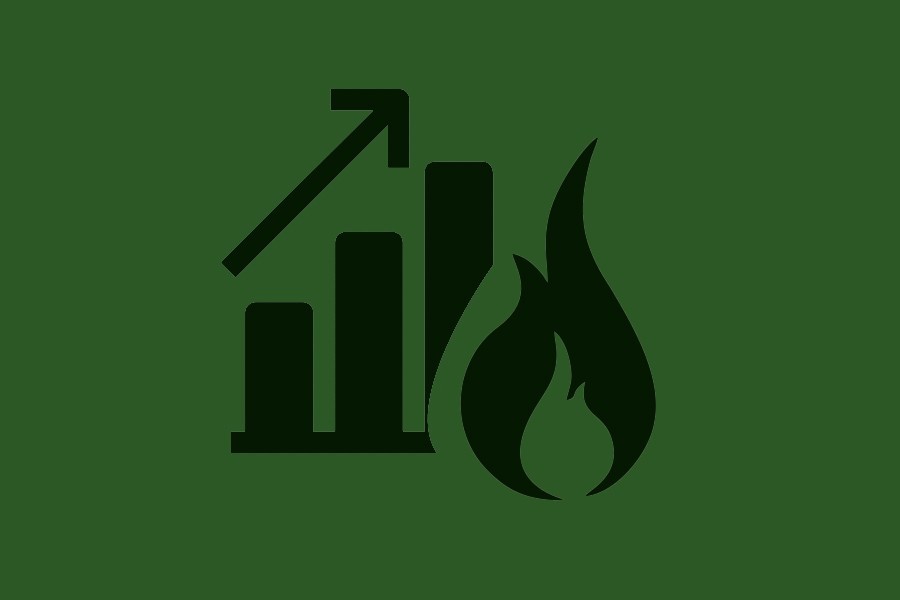The government has raised almost three-fold the per unit gas price for public and private power plants and industrial units. The increase will be two-fold for captive power plants. This new escalation in gas price that follows a previous such hike some six months back is going to take effect from early next month. This fresh government order on gas price hike that has come hard on the heels of a similar one issued for hiking power tariff last week may not be surprising but undoubtedly disconcerting.
During the past few months, the business community had been holding meeting after meeting with the government's energy and mineral resources division so that they might get the assurance of an uninterrupted gas supply to their industrial units. In those meetings, they even expressed their readiness to pay gas tariffs at an enhanced rate of even Tk 25 for each unit. In the same breath, they also stipulated that the gas price should be adjusted in agreement with any fall in gas price in the international market. Evidently, it was part of a desperate bid on the part of the business community to save their industries.
But when the country is witnessing loadshedding for hours even during this winter months with far lower demand for power, one wonders if the power plants of the country, some 50 per cent of them running on gas, are getting the requisite amount of gas to operate their installations at the expected level. This is indeed concerning. In that case, the question naturally arises about the government's ability to fulfil the business community's demand for sustainable gas supply to their industrial units. However, in the said government directive, the gas tariff for the general consumers at the household level has been left unchanged. The same is going to be the case with the fertiliser factories, tea estates and the CNG-run motor vehicles. However, hotels and restaurants will see only a slight increase in their gas tariff, so goes the new government order. So far so good! Even so, the general consumers have other fears. For as a corollary of the new gas price hike, the production cost of power at the country's power plants may see another round of increase.
In this context, reports have it that even after last December's bulk power tariff hike, the government has been counting loss in power sector and is fearing a deficit that would be so big that the government subsidy earmarked for the purpose will not be able to meet. So, it is hard to see how the power tariff, which has already seen a raise last week, might continue to remain stable. And how, in that event, the general power consumers would be able to escape unscathed so far as their monthly power bills go. Likewise, the latest gas price hike will in all probability leave a knock-on effect on the consumer prices through pushing those up by another notch and thereby driving up the cost of living further. Thus the inflation put on a runaway trail is likely to erode competitiveness of the industries. So, considering its many implications that are concerning, the government would do well to rethink its decision on new gas tariff hike before it takes effect from the next month.


